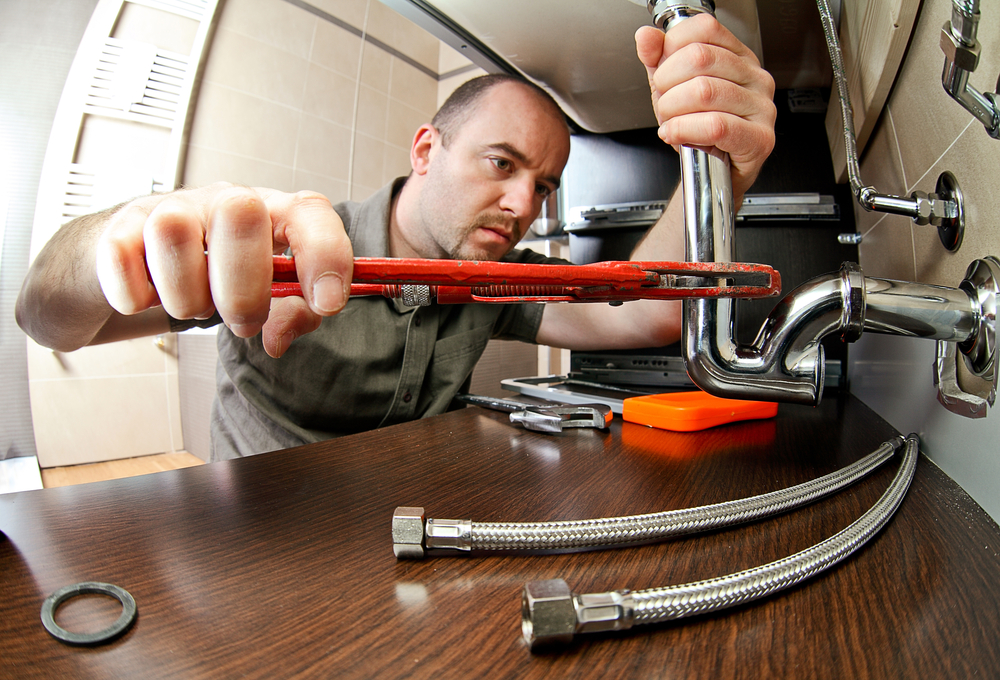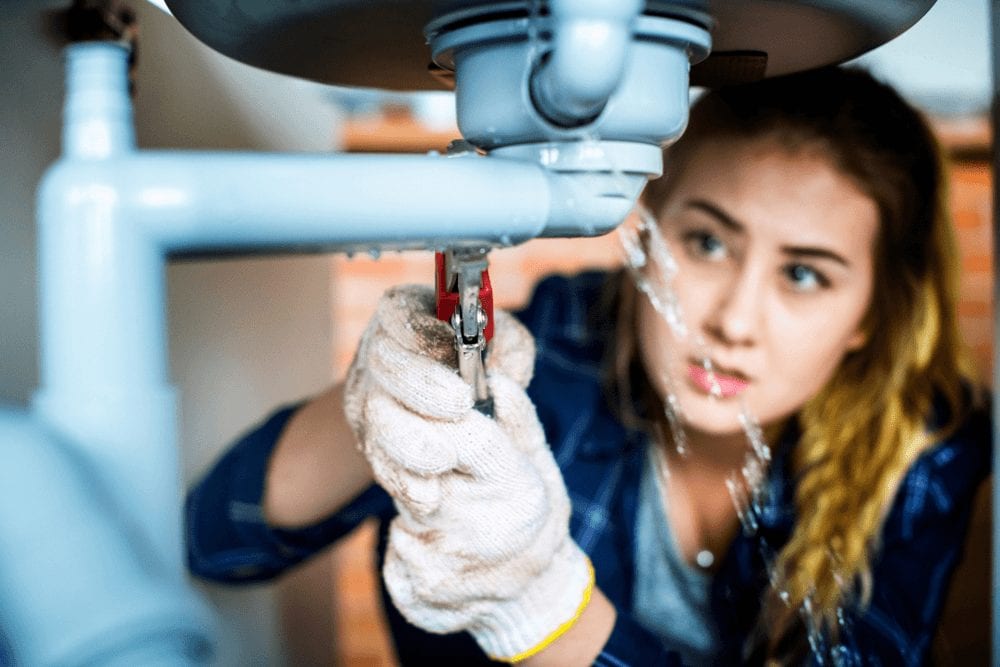Book Services
They are making a few great points relating to Don’t Let an Earthquake Damage Your Plumbing in general in this article followed below.

The key to long-term appliances, unsurprisingly, appertains upkeep. There's no set regulation that can ensure your plumbing appliances a long wear, however you can stop unneeded damages and also repair work by preventing negative plumbing behaviors.
You need to quit doing these 6 points else you'll keep calling your plumber over for minor faults.
Purging everything
Yes, your commode drain causes the sewage systems, but that doesn't imply you should discard just anything down the drain. Numerous 'flushable' materials are in fact fantastic blockage starters, as an example floss. Asides maintaining noticeable non-flushable products like cables and plastics out of your commode, you need to additionally stay clear of flushing cotton buds, menstruation products, wipes, daipers as well as prophylactics down the commode drain.
DIYing every little thing
With plumbing, a stitch in time really does conserve 9. You can avoid a fullblown plumbing emergency by calling your plumber at the right time.
You might have learnt a couple of plumbing hacks from your dad, yet you should recognize where to fix a limit and also call a professional. For example, you may be able to fix an obstruction on your own, yet you shouldn't try to transform a pipeline. You can mismatch pipelines or overtighten a screw, causing even more injury and damages than you believed. Calling a plumber is a secure and economical decision.
Using too much drainpipe cleaner
Utilizing a drainpipe cleaner more than once or twice a month is a sign that something significant is taking place within your pipelines. Now, as opposed to dealing with the major concern, you go for a quick fix; a fizzy drainpipe cleaner. Rightfully, a drainpipe cleaner will deal with the blockage, however at what price?
The chemicals in a drainpipe cleanser can accelerate the deterioration of your pipes. Include that to whatever underlying issue is creating the obstruction and you may have to a serious issue on your hands.
If you experience way too many clogs, call your emergency plumber as opposed to using a drain cleaner.
Pouring grease in the sink
We know appropriately disposing of oil after a hearty meal is a pain. But just pouring it down the drain can do lasting damage to your pipelines. "The fat and also grease can clog your drain terribly adequate to compel you to call a plumber," explains Dawson. "Plumbing works best when it's well cared for-- not abused with grease."
Not changing your dishwashing machine pipes
One simple method to guarantee that you use your dishwasher for years is to replace the tube at the very least when in five years. This also applies for washing device pipes.
Gradually, food bits, soap as well as oil can create obstructions within your pipelines. Replacing them on time will stop any presure develop that can damage the internal operations of your dishwasher or cleaning equipment.
An enhanced steel entwined pipe does a terrific task of extending your machine's use time.
No winter months preventative measures
Severe climate condition misbehave for your pipes, especially if they're constructed from steel. You need to insulate your revealed pipelines, as well as your water tank, even if you have a water heater. You should likewise switch off your garden hose valve and any other external water channels. These channels are outlets for cold; you pipes can start to ice up from outdoors if you do not.
How Hard Water Damages Your Plumbing and Appliances
Hard water is no stranger to most households across America. This silent invader affects 85% of homes in the United States every day, wreaking havoc on pipes, plumbing fixtures, and water-using appliances.
Should you become a victim of hard water, you must understand exactly what it is and how it affects your plumbing and appliances. This will help you determine the correct measures to put in place to fix or prevent any problems that may arise.
First off, what exactly is “hard” water?
In short, “hard water” is used to describe water that contains relatively high amounts of dissolved minerals, primarily calcium and magnesium, and a host of trace metals. When rainwater falls from the sky (usually in a pure form), it absorbs the hardness minerals from rocks and soil, which changes it from soft to hard water.
What about my plumbing and appliances?
Mineral deposits from hard water can cause buildup on tubs, shower, sinks, faucets. But that’s only a small scratch of the surface. Those minerals can gradually build up inside pipes, fixtures, water heaters, washing machines, and dishwashers. Once they accumulate in those areas, they can clog pipes and create major problems throughout your plumbing system, from reduced water flow to increased pressure on pipes and fixtures.
This limescale buildup might affect some appliances, causing them to operate less efficiently and wear down faster. And the result? Higher energy bills, more (costly) plumbing replacements and repairs, and damaged appliances.
Keep in mind that certain types of plumbing are more susceptible to clogging than others. Copper, PVC, and PEX pipes are more resistant to hard water buildup and corrosion, but they can still get clogged or completely blocked by scale deposits.
How do I know if my water is hard?
White limescale buildup on plumbing fixtures (or any of the other signs mentioned above) is usually a good sign that your water is hard. If you suspect that you have hard water, you can simply shake up a small amount of dish soap and water in a closed container. If the mixture doesn’t create a lot of suds, you probably have hard water.
The most precise method, however, is to test your water with a DIY test kit (sold online or at local home centers or hardware stores) or send a water sample from your tap to a local lab to be tested. Be sure that you understand the nature of the test, the water condition being measured, and the significance of the test results.
Another way to obtain an estimate of water hardness is to check your annual water quality report to see if your water provider has reported any instance(s) of water hardness in your water supply.
https://www.springwellwater.com/how-hard-water-damages-your-plumbing-and-appliances/

I'm certainly very focused on Ways to Make Your Pipes Last Longer and I'm hoping you enjoyed reading our blog entry. So long as you appreciated our blog entry if you please remember to share it. Kudos for your time. Don't forget to come by our site back soon.
Contact Us Today